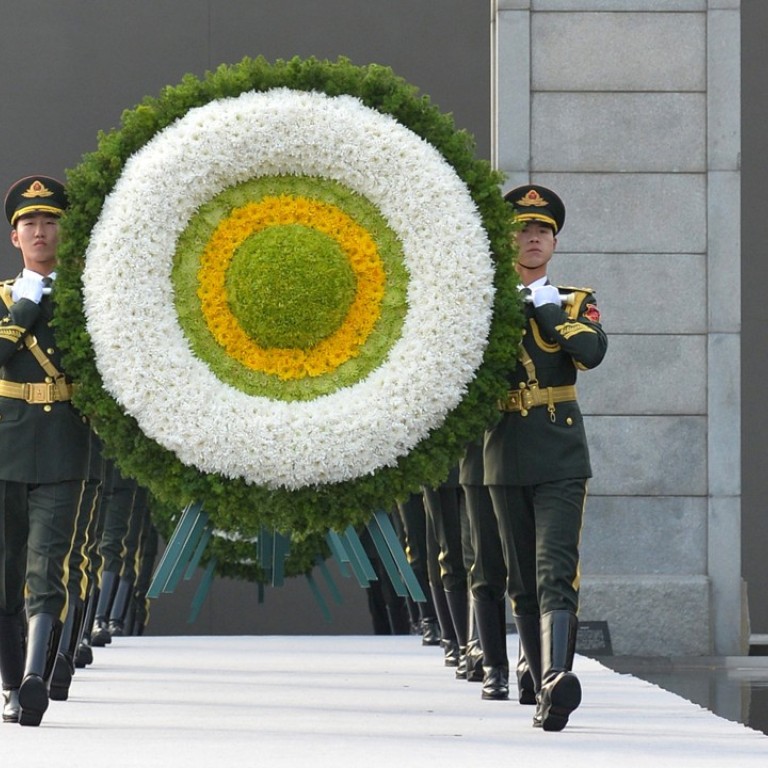
Letters to the Editor, December 22, 2017
Recalling dark Christmas Day and surrender
With Christmas almost here, people are preparing in various ways for this great festival.
Whereas the commercial world takes advantage of the festive season by promoting the frenzied buying of presents, religious groups emphasise its deeper meaning. However, few of us may remember those martyred in the defence of Hong Kong and the surrender to the Japanese by governor Sir Mark Young, on Christmas Day 1941.
Young, with the help of his military commanders, mobilised the forces available for the defence of Hong Kong after Japanese soldiers flooded over the border on December 8.
The battle was fierce and of course ended in defeat for the British crown colony.
Following the surrender and in the ensuing years of occupation, Japanese soldiers committed many atrocities and all in the city had to endure severe wartime austerity.
Compared with Hong Kong, Macau where I live was rather fortunate. It was thought that Macau escaped Japanese occupation because of Portugal’s neutrality in the second world war. However, some historians claim that the reason was more complicated.
Japan had close relations with Brazil, a former Portuguese colony. The Japanese government was concerned that occupying Macau might damage relations with Brazil and this could have consequences for the more than one million Japanese immigrants in the country.
However, despite its neutral status, residents of Macau still suffered serious food shortages.
Looking back to that period and the decades leading up to the war, we can see that the troubled Sino-Japanese relationship brought tragedy to China at various times, for example, with the first Sino-Japanese War in 1894-1895, which resulted in humiliating defeat and loss of territory for the Qing dynasty.
Then there was the most traumatic episode with the Nanking massacre of 1937. The 80th anniversary was commemorated earlier this month in Nanjing. It remains a stumbling block in relations between Beijing and Tokyo. Over time, I think there will be forgiveness and remaining problems will be resolved. The Chinese and Japanese, who were bitter enemies, can become friends.
I hope people can put their differences aside, free of thoughts of vengeance, and enjoy this special religious festival.
Barnaby Ieong, Macau
Free speech on mainland still suppressed
In October, in his speech to the 19th party congress, President Xi Jinping outlined his vision for the “new era” for China.
The strategy he described can enhance China’s global influence and boost its economy. However, the country still faces many major problems, one of which is the lack of free speech. The Communist Party opposes anything it thinks might weaken its leadership and its one-party dictatorship.
I am glad that at least in Hong Kong we enjoy freedom of speech and I hope that some day citizens on the mainland will have the same rights.
Chow Sin-ying, Kwai Chung
Harassment victims show great courage
I have been shocked by the sexual harassment claims made against some leading celebrities, including Harvey Weinstein.
This kind of behaviour towards women is disturbing and unacceptable. Unfortunately, it is not only prevalent in the entertainment industry. In various workplaces, women still face sexual harassment.
I admire those courageous women who have already spoken about their experiences and hope that more victims will feel empowered by this and make their voices heard.
It is of great importance to build a culture of respect in our society and send a strong message to sexual predators that zero tolerance will prevail in the workplace.
Jenny Fok, Fanling
Smartphone in classroom is distraction
I do not think that pupils should be allowed to use their mobile phones at any time on the school campus. Most secondary schools already place restrictions on phone use, because they can be a serious distraction.
It is difficult for many teens to concentrate in class if they have their smartphone switched on and are looking at it all the time, especially if they are using apps that having nothing do to with their studies.
Allowing use of mobile phones during lessons disturbs the learning environment. Pupils need to focus their attention on what the teacher is saying. They will miss out on so much of school life if they are completely wrapped up in their smartphones.
Jessica Ng Ka-yin, Kowloon Tong
E-books are fine, but there is a downside
I agree with correspondents who have said that there are benefits to e-books, but have also highlighted the downside.
Using e-books means pupils will have to carry fewer textbooks to school, so their bags are lighter and this puts less pressure on their shoulders, neck and back.
Also, it is environmentally friendly to use e-books. And pupils save money as they get a lot of material online that is free or cheaper than a textbook.
However, overuse can cause problems. Spending long periods looking at an electronic screen can lead to eye strain and other eye problems for young people.
Moreover, some parents on low incomes may not be able to afford e-books for their children.
Schools must recognise the positive and negative aspects when they decide on how much time pupils should be allowed to spend using their e-books in class and when they are doing homework.
Hilary Lee, Tseung Kwan O

